Interview: Noelle Kerr, Board member of the Jamaica Film and Television Association (JAFTA) and Actor/Producer
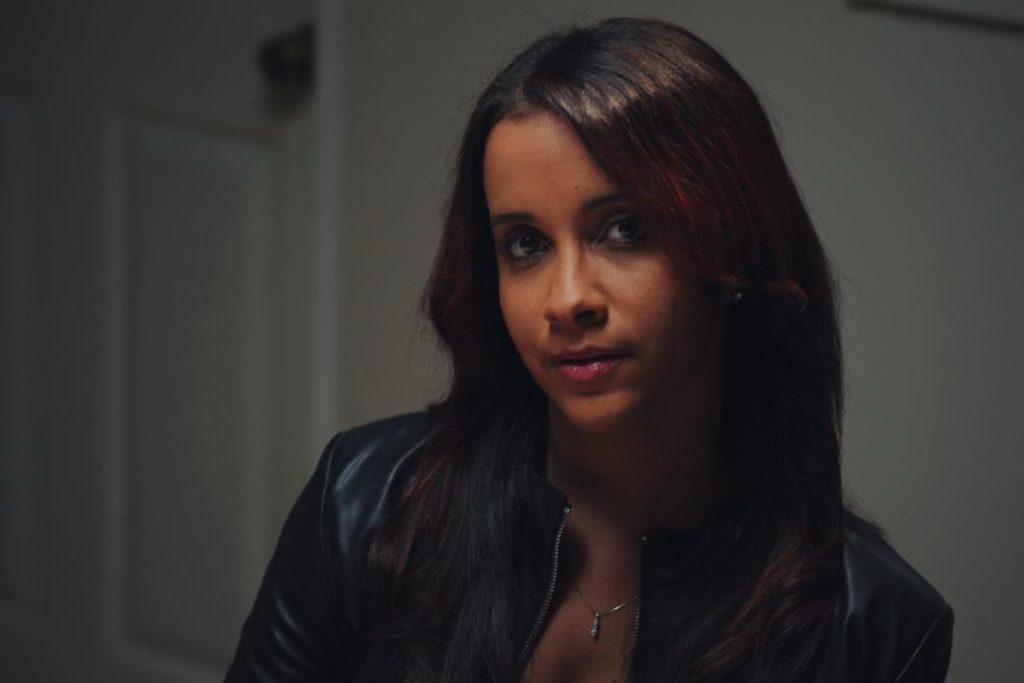
Noelle Kerr and the rest of the JAFTA board have been actively working on the development & promotion of Jamaican film for many years. JAFTA helps build a local filmmaking community through a number of initiatives that involve cultural exchange, specialized workshops and organized meetings between the creative forces and the financial experts.
For Jamaica that doesn’t have the established film industry yet, it’s the tight collaboration between a Film and TV industry association like JAFTA, government agencies and Ministries and the consistent support of the local film and TV industry practitioners that help projects come to life. Major government institutions include JAMPRO (through its Film Commission arm) –an Agency of the Government of Jamaica’s Ministry of Industry, Commerce, Agriculture and Fisheries (MICAF) that promotes business opportunities in export and investment to the local and international private sector; the CHASE Fund (an Agency of the Office of the Prime Minister), and the Ministry of Culture, Gender, Entertainment and Sport (MCGES).
We sat down to talk to Noelle Kerr at the Uppsala International Short Film Festival, where she presented a selection of seven short films titled “Jamaica now!” curated by the President of Jafta, Annalisa Chapman.
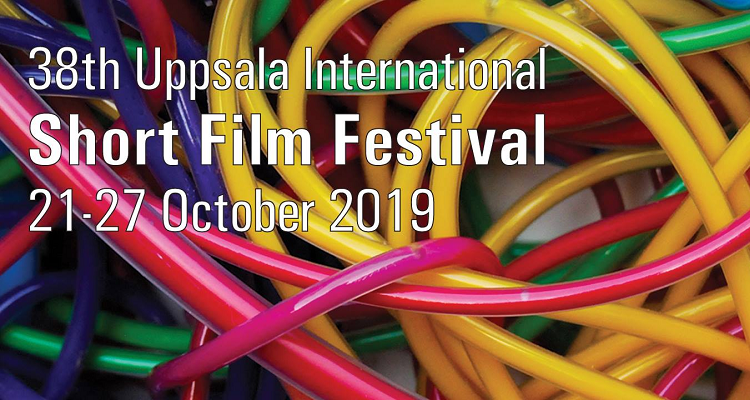
Since when is “JAFTA” active, what is it and what kind of work are you doing?
We started in 2015 and we are very young, but the whole reason is that we are trying to help filmmakers to come together and learn and promote their work. We try to create, or facilitate, initiatives whether it be workshops or film labs such as the one tied to the British Council in Jamaica, which is a British Council/JAFTA/JAMPRO developmental programme focused on developing skillsets for screenwriters, producers and story editors for feature film projects and advancing the project that they work on during the lab. They get script development which are not just aimed at the script writers , but which involves the script editor and producer. You can come in as a script editor or as a producer, and basically learn that journey of developing and producing a feature film screenplay or project. You go through that process, which also involves workshops on producing, financing, pitching and marketing, for a year. There was a pitching competition component where a representative of project awardees were able to attend the Berlinale Film Market and experience that aspect of pitching for funding. This year the programme is being developed to provide further market attendance support for participants. JAFTA manages the overall programme and training and developmental component, JAMPRO leads on market attendance and the British Council is the lead partner which supports and funds the overall initiative.
The Jamaica Film and Television Association (JAFTA) is a not-for-profit association comprised of local film and TV practitioners and geared at cultivating a local audio-visual community. In addition, JAFTA facilitates and supports cultural exchange, capacity building, mentorship and developmental initiatives, skills-sharing and community outreach. Our overall aim and efforts are to advance best practices for the development of the local film and audio-visual industry.
Jamaica Now and The JAFTA Block
The films for this ‘Jamaica Now’ segment (Cross My Heart, Learning to Swim, Unspoken, Sea People, Kinto, Haven and Flight) represent the works and voices of emerging talents – some first time filmmakers-, from Jamaica and the Jamaican diaspora, and their efforts to shine a lens on . uncomfortable issues and provoke necessary conversations. Jamaica Now also represents our efforts to showcase more of the great work that is coming out of Jamaica and our diaspora. We recently also launched the JAFTA Block series which is a rotating showcase of films from Jamaican filmmakers, here and abroad, that we screen at various venues in Jamaica and other countries, to demonstrate the diversity of talent and stories of Jamaican film and to give others the opportunity to see and be inspired by what is happening in Jamaican film, because there is a strong and positive movement taking place. It is also because JAFTA is wider than any one initiative and we want to show and support more of what our local industry practitioners are doing and can do.
Our other developmental initiatives include our signature initiative ‘JAFTA Propella’ for short films. One of the films from JAFTA Propella, Flight, is featured in the Jamaica Now segment.
Can you tell us something about the JAFTA Propella project?
JAFTA Propella is a short film developmental script-to-screen initiative which began in 2016. It followed collaborative initiatives such as New Caribbean Cinema but this time with a more developmental and funding component. It was actually initiated by one of our members Justine Henzell. She is one of the stalwarts of the Jamaican film Industry. Her father was Perry Henzell who directed The Harder They Come (1972). She has been in film for years and it all started with her and JAFTA rallied around her. That’s how the idea for JAFTA Propella was born and it was manned and executed by JAFTA, including through our initial JAFTA Propella sub-committee of Gabrielle Blackwood, Kenia Mattis and Justine Henzell and many more helping behind the scenes. It’s a blind submission process where you have to e-mail in a treatment with the idea of a film that you would like to make. The decision is completely objective, and it is narrowed down to ten. At that point the ten are revealed, they have to fine-tune and show that they can produce this film. Out of those ten, the five films are chosen and developed into a script. They are given a grant amounting to approximately 5000 dollars provided by the CHASE Fund government agency, to take it from script to screen. They go through lots of different useful workshops, for instance writers workshops towards honing the script, directing and most recently production management, and at the end of it, they get a short film of approximately 10-12 minutes and it premieres at the Trinidad and Tobago Film festival (https://ttfilmfestival.com/). After that they get to visit one of the other film festivals through the market attendance support of JAMPRO. Ms. Renee Robinson is our current Film Commissioner and she and the entire JAMPRO team do amazing work to support the JAFTA Propella initiative. Apart from the hard work of the JAFTA team and government support bodies, and funding support of CHASE, it has also been the unwavering commitment of all our local filmmaking community who have helped make these productions a reality. They often discount and sometimes lend their services to JAFTA Propella and other short film projects because they believe so strongly in our local talent and the stories they want to tell, and they do what can to support the development of Jamaican projects and our film industry.
It’s been such a transition for people in the field to really start getting their work out there, so through them we went to the Toronto International Film Festival (TIFF) in the first year, which was our first experience of a big international film festival. After that they went to the Clermont-Ferrand International Short Film Festival in France. In essence, because we are producing short films, it was better to push them to get the real experience at a short film festival versus TIFF which is such a vast festival that does have a short film section. Nevertheless, people can go to TIFF every year if they wish, but on their own dime versus JAMPRO sponsoring. It is brilliant of them to sponsor representatives of the JAFTA Propella project awardees to attend the various festivals.
Does JAFTA also get the support from the government?
Yes, JAMPRO is a huge creative industry supporter. JAMPRO, through its Film Commission and otherwise, has been a huge supporter and has tied very nicely with many JAFTA programmes that we’ve done. They try to sponsor or help us in every possible way, even if it’s just to provide a meeting room, or as I said to sponsor plane tickets to fly to the festivals abroad. The Ministry of Culture, Gender, Entertainment and Sport (MCGES) has also been very supportive. The Ministry of Culture supported my particular short film “Origins” that I did with my partner, Kurt Wright, and that particular support was what took us on the journey to do the pilot for the series. They also provide partial funding to one of the pitching awardees in the Film Lab programme. They express interest in anyone who tries to push Jamaican work and things that are very tied to our culture. The CHASE Fund agency under the Office of the Prime Minister also contributed significantly to production funding for JAFTA Propella for the first three stagings of the initiative as well.
Most of the films from your selection shown in Uppsala are very socially aware. Is that what film makers are usually submitting?
It’s not the prerequisite. I think a lot of film makers now are trying to tell the stories that aren’t just about gun violence which I think has been overrepresented when it comes to Jamaican films. Or you’ll see that story of a Rasta man who ends up with a Christian lady. That has also been very dominant. I think that we are trying more and more to break away from that and show completely different kinds of stories that are more universal, and that are happening. You can place them anywhere in the world and they will still be relevant. We have universal stories as well. We have stories of love, and relationships with parents, or trying to find a way in the world and kind of suffering for it. Or stories about finding your own voice and avoiding taking your life in the wrong direction. In this case, we chose films that are a bit heavier and more social or gender focused. However people are also doing comedies, horror and sci-fi among other genres. I think that this was a strong collection of shorts with a wide range of stories.
Which film makers should we watch for in the future?
It’s going to be subjective. So, this is what I think. There is Storm Saulter who’s been pushing feature films. He’s just had “Sprinter” come out. Then, Kurt Wright, the director of “Unspoken”. He was also the writer & Director of “Origins”, which is one of the films from the JAFTA Propella project. Also, Gabrielle Blackwood who is not only a film maker, but also a director of photography. She’s actually working on a project called “Kendal” which I hope will be realized. I read the script for it, and it’s strong. Right now, they are all pushing their films. There are also some other people in the industry who are worth looking at. For instance, Joshua Paul with who was represented in the program in Uppsala with his short “Kinto”. I am really curious what he’ll take up next. I don’t know what Kia Moses is going to do next. She is the one who wrote “Flight”, which was her first film. She actually works in advertising but through Propella she ventured into narrative work, quite successfully. I’m excited to see what she tackles in future. In addition there is and ever-growing pool of emerging Jamaican filmmakers and talent to look out for.
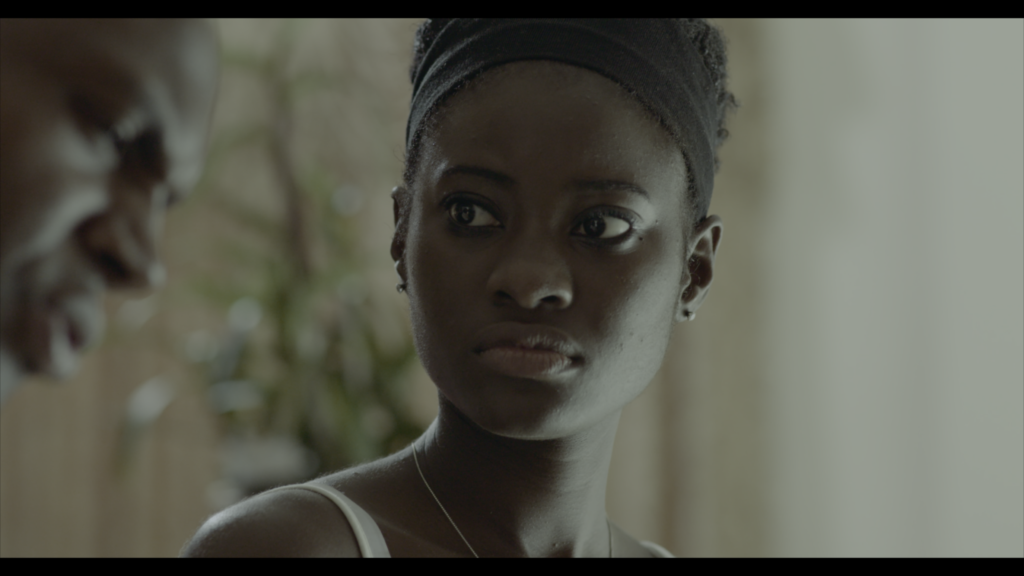
Film still from “Unspoken” by Kurt Wright 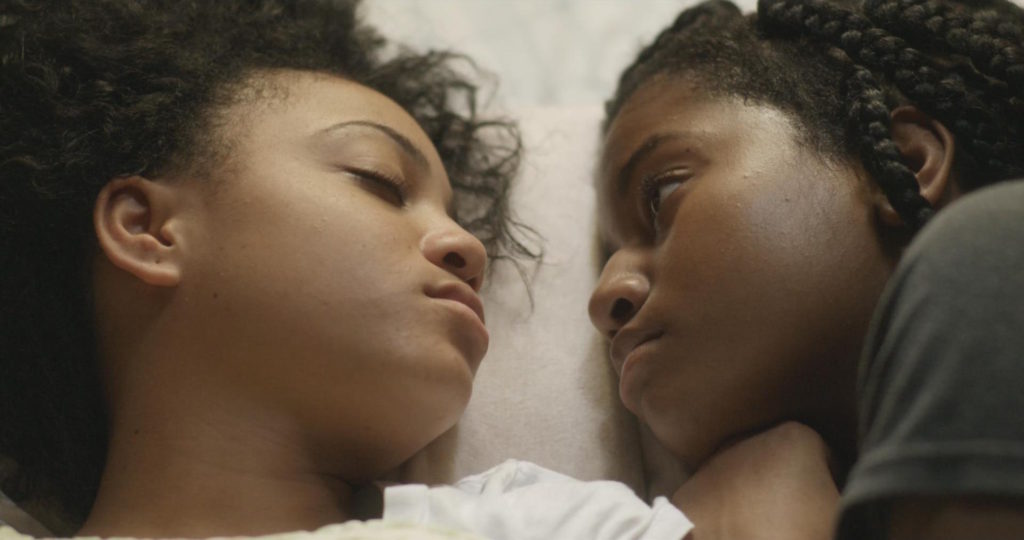
“Cross my Heart” by Sontenish Myers
I have noticed that in “Jamaica Now!” were predominantly female film makers.
Interestingly, yes. That’s nice to see, because I do find that when it comes to film directing, it tends to be a very male dominant form. Sontenish Myers, is based in New York, but her family is from Jamaica, and she really felt strongly about telling a Jamaican story. She came home to do “Cross My Heart”. Even “Unspoken”, although it has a male director (Kurt Wright), a female producer is behind it.
But “Unspoken” doesn’t feel like a film directed by a man.
I will let him know you feel that he can speak sensitively about difficult topics. That’s the skill that I’ve always felt he has as a writer. He gets into the headspace of his characters while writing, even if there are multiple characters speaking, each has a very specific voice.
A lot of stage actors are now transitioning to film because they see that there are opportunities for growth there, and that this could genuinely push their career outside of Jamaica. So, film is a good direction to go in. We always have the auditioning process, but I will often get called for suggestions for castings because I have ties to the theatre industry as well. I encourage filmmakers to work with stage actors and help with that transition from stage to screen. We have more and more actors stepping out and joining Jafta. We are also starting table reads to connect actors with writers and directors. This allows the writer to get a feel for their work off the page but also build relationships for future work. We are bringing the worlds together.
What is your vision of JAFTA’s future?
I see us going from strength to strength. It’s a young association and I think that we’ve managed to do so much in such a short time. And if we can do that much in a short time, imagine what we can do in the future. For the Film and TV industry, it’s created a legitimate space for them to come together and exchange ideas and help each other. There are so many pieces of work that are getting done for little and nothing because the practitioners just want to support each other. It’s worth investing our time because it’s going to benefit us all down the line, and there is a much bigger picture being built. We have a burgeoning film industry and the potential to start making our mark in the world of film. That’s why it’s important to bring the business and the creative side together. It’s a world that isn’t filled with guarantees, but there are still ways to move forward.



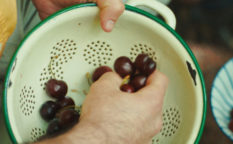













2020-02-02 @ 17:51
Flight was so fantastic! For the opening celebration of Jamaica 50th in 2012 My special guest was as astronaut who actually went into space! I wish these children could have met him.